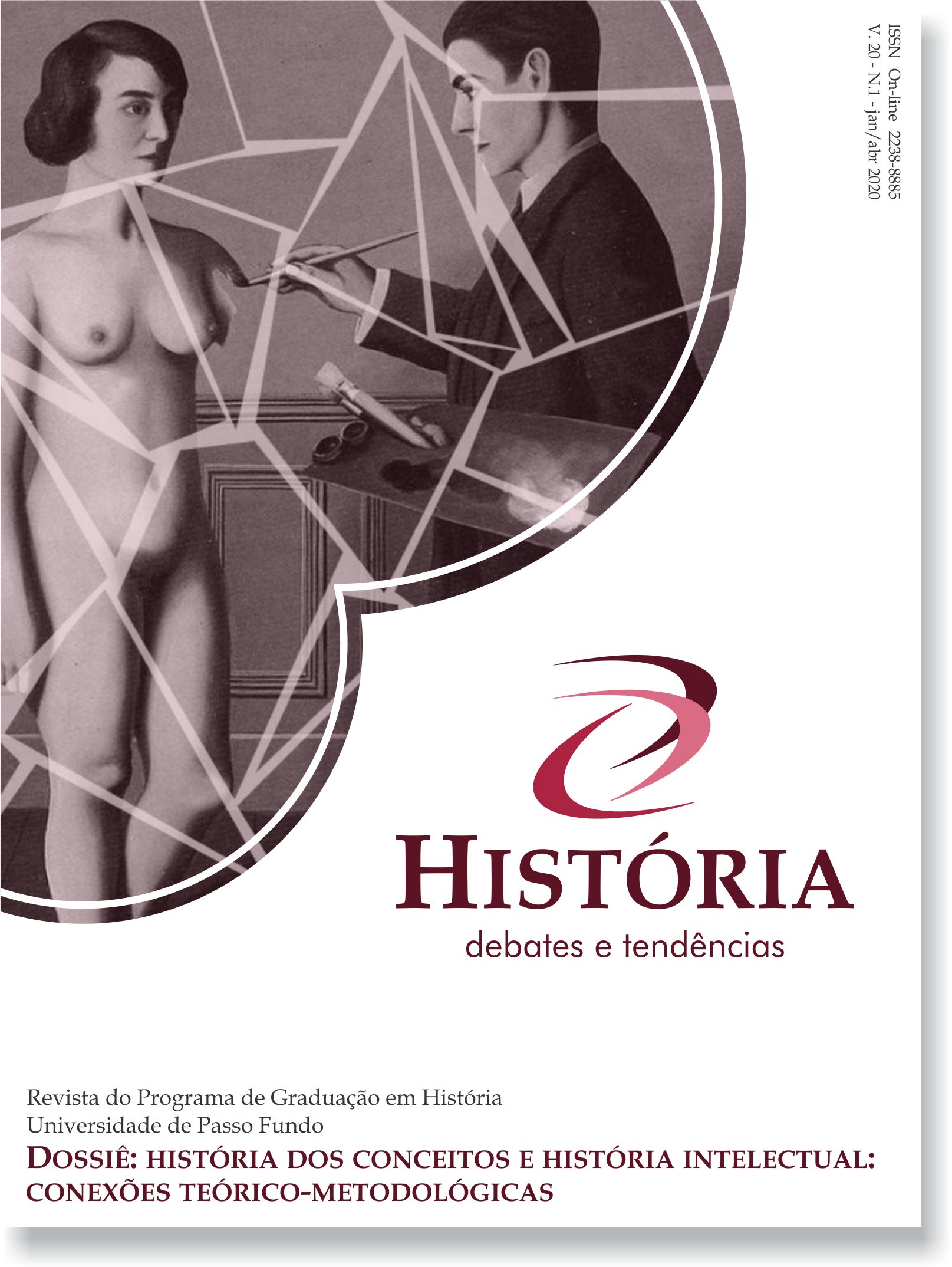A história intelectual e a virada ontológica na antropologia
DOI:
https://doi.org/10.5335/hdtv.1n.20.10410Palavras-chave:
Antropologia, História intelectual, Virada ontológicaResumo
O presente artigo pretende mostrar uma investigação sobre a contribuição que a virada ontológica na antropologia contemporânea pode proporcionar para a história intelectual. Trata-se de pensá-la como uma resposta à virada linguística ao se evocar o primado ontológico conferido aos existentes, incluindo não humanos, o que reforça seu caráter materialista, por vezes antinarrativista e antitextualista. O artigo divide-se em três partes: a primeira apresenta algumas características da história intelectual no interior da virada linguística e para além dela; a segunda apresenta algumas ideias da virada ontológica na antropologia, consubstanciadas na antropologia simétrica, no perspectivismo ameríndio e na antropologia da natureza; por fim, lança mão de um exemplo empírico da história intelectual no Brasil que pode permitir uma leitura da obra como presença de duas ontologias: a naturalista e a animista. Trata-se da obra Os sertões, de Euclides da Cunha.
Downloads
Referências
CARR, David. Experience and History: phenomenological perspectives on the historical world. Nova York: Oxford University Press, 2014.
CARR, David. Time, Narrative, and History. Bloomington/Indianapolis: Indiana University Press, 1991.
CLEMENS, Justin. Vomit Apocalypse; or Quentin Meillassoux’s After finitude. Parrehesia, n. 18, p. 57-67, 2013.
CUNHA, Euclides da. Os sertões. [1902]. São Paulo: Brasiliense, 1985.
DESCOLA, Philippe. Estrutura ou sentimento: a relação com o animal na Amazônia. Mana, n. 4, v. 1, p. 23-45, 1998.
DESCOLA, Philippe. As lanças do crepúsculo: relações jivaro na Alta Amazônia. São Paulo: Cosac Naify, 2006.
DESCOLA, Philippe. Más allá de naturaleza y cultura. Buenos Aires: Amorrortu, 2012.
DESCOLA, Philippe. Além de natureza e cultura. Tessituras, v. 3, n. 1, p. 7-33, 2015.
KOSELLECK, Reinhart. Teoria da história e hermenêutica. In: KOSELLECK, Reinhart. Estratos do tempo. Rio de Janeiro: PUC/Contratempo, p. 91-109, 2014.
KRENAK, Ailton. Ideias para adiar o fim do mundo. São Paulo: Cia. das Letras, 2019.
LACAPRA, Dominick. Rethinking intellectual history: texts, contexts, language. Ithaca: Cornell University Press, 1983.
LACAPRA, Dominick. Understanding others: peoples, animals, pasts. Ithaca: Cornell University Press, 2018.
LATOUR, Bruno. Jamais fomos modernos. São Paulo: Ed. 34, 1994.
LATOUR, Bruno. War of the Worlds: What about Peace? Chicago: Prickly Paradigm Press, 2002.
RORTY, Richard. El giro lingüístico. Barcelona: Paidós, 1990.
SÁ JÚNIOR, Luiz César de. Philippe Descola e a virada ontológica na antropologia. Ilha, v. 16, n. 2, p.7-36, ago/dez 2014.
SANTOS, Luis Henrique dos. Russell: vida e obra. In: RUSSELL, Bertrand. Ensaios escolhidos. São Paulo: Abril Cultural, p. VI-XX, 1978.
VIVEIROS DE CASTRO, Eduardo. Os pronomes cosmológicos e o perspectivismo ameríndio. Mana, n. 2, v. 2, p.115-44, 1996.
VIVEIROS DE CASTRO, Eduardo. Encontros. Rio de Janeiro: Beco do Azougue, 2008.
VIVEIROS DE CASTRO, Eduardo. Metafísicas canibais. São Paulo: Cosac Naify, 2015.






